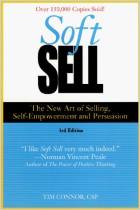Join getAbstract to access the summary!

Join getAbstract to access the summary!
Gerhard Gschwandtner
The Pocket Guide to Selling Greatness
McGraw-Hill, 2006
What's inside?
A one-stop source for inspiration, motivation and advice on improving your mind, spirit and sales acumen.
Recommendation
Gerhard Gschwandtner unearths gems of wisdom on the secrets of personal and professional excellence in this compilation of essays. The publisher of the popular sales magazine Selling Power has extrapolated some of the most compelling advice from the world’s leading sales experts, including Zig Ziglar, Michael Dell, Donald Trump and Mary Kay Ash. Some chapters concentrate on practical guidance, such as the precepts of return-on-investment (ROI) selling, while others focus on philosophical guidance, including how to find happiness and success while pursuing your professional dreams. The chapters are designed more for inspiration than application, so you don't need to read the book in a linear way, but instead, you can dip in and out. getAbstract recommends using this book as you would a "thought of the day" calendar. Read a chapter when you are looking for a pithy saying, an uplifting story, a success formula or a motivational anecdote. Let it be a frequent inspiration.
Summary
About the Author
Gerhard Gschwandtner created and publishes Selling Power magazine, which has 200,000 readers in 67 countries. The Austrian sales trainer has 30 years of sales and marketing experience.


















Comment on this summary